The Mummy Read online
Page 2
"All I mean to say," Randolph pressed, "is that if Lawrence would express his wish about this marriage ..."
"And the small matter of the twenty thousand pounds?" Elliott asked suddenly. The tone was soft, polite, but the question was unforgivably rude. Nevertheless he persisted. "Edith will be back from France in a week and she's certain to notice that the necklace is missing. You know, she always does."
Randolph didn't answer.
Elliott laughed softly, but not at Randolph, not even at himself. And certainly not at Edith, who had only a little more money now than Elliott did and most of it in plate and jewels.
Perhaps Elliott laughed because the music made him giddy; or something about the vision of Julie Stratford, dancing down there with Alex, touched his heart. Or perhaps because of late he had lost the ability to speak any longer in euphemisms and half-truths. It was gone along with his physical stamina, and the sense of well-being he had enjoyed throughout his youth.
Now his joints hurt more and more with every passing winter; and he could not walk half a mile any longer in the country without suffering a severe pain in his chest. He did not mind having white hair at fifty-five, perhaps because he knew he looked rather good with it. But it bruised him secretly and deeply to have to use a cane wherever he went. These were all mere shadows, however, of what was yet to come.
Old age, weakness, dependence. Pray that Alex was happily married to the Stratford millions, and not before too long!
He felt restless, suddenly; dissatisfied. The soft swooshing music annoyed him; sick to death of Strauss, actually. But it was something keener.
He wanted to explain it suddenly to Randolph, that he, Elliott, had made some crucial mistake a long time ago. Something to do with those long nights in Egypt, when he and Lawrence would walk through the black streets of Cairo together, or rail at each other drunkenly in the little saloon of the boat. Lawrence had somehow managed to live his life along heroic proportions; he had accomplished things of which others were simply incapable. Elliott had moved with the current. Lawrence had escaped to Egypt, back to the desert, the temples, to those clear star-filled nights.
God, how he missed Lawrence. In the last three years they had exchanged only a handful of letters, but the old understanding would never grow dim.
"Henry took some papers with him," Randolph said, "small matter of family stock." He glanced about warily, too warily. Elliott was going to laugh again.
"If it goes as I hope," Randolph continued, "I'll pay you everything I owe you, and the marriage will take place within six months, I give you my word." Elliott smiled.
"Randolph, the marriage may or may not happen; it may or may not solve things for both of us-" "Don't say mat, old boy."
"But I must have that twenty thousand pounds before Edith comes home,"
"Precisely, Elliott, precisely."
"You know, you might say no to your son once hi a while." A deep sigh came from Randolph. Elliott didn't press it. He knew as well as anyone did that Henry's deterioration was no joke any longer; it had nothing to do with sowing wild oats, or going through a rough period. There was something thoroughly rotten in Henry Stratford and there always'had been. There was very little that was rotten in Randolph. And so it was a tragedy; and Elliott, who loved his own son, Alex, excessively, had only sympathy for Randolph on that score.
More assurances; a positive din of assurance. You'll get your twenty thousand pounds. But Elliott wasn't listening. He was watching the dancers again-his good and gentle son whispering passionately to Julie, whose face wore that look of determination that flattered her for reasons that Elliott could never fully understand.
Some women must smile to be beautiful. Some women must weep. But with Julie, the real radiance shone only when she was serious-perhaps because her eyes were too softly brown otherwise, her mouth too guileless, her porcelain cheeks too smooth.
Fired with determination, she was a vision. And Alex, for all his breeding, and all his proffered passion, seemed no more than **a partner" for her; one of a thousand elegant young men who might have guided her across the marble floor.
It was the "Morning Papers Waltz" and Julie loved it; she had always loved it. There came back to her now a faint memory of dancing once to the "Morning Papers Waltz" with her father. Was ft when they had first brought home the gramophone, and they had danced all through the Egyptian room and the library and the drawing rooms-she and Father-until the light came through the shutters, and he had said:
"Oh, my dear, no more. No more."
Now the music made her drowsy and almost sad. And Alex kept talking to her, telling her in one way or another that he loved her, and mere was that panic inside her, that fear of speaking harsh or cold words.
"And if you want to live in Egypt," Alex said breathlessly, "and dig for mummies with your father, well then, we'll go to Egypt. We'll go straight after the wedding. And if you want to inarch for the vote, well then, I shall march at your side."
"Oh, yes," Julie answered, "that's what you say now, and I know you mean it with all your heart, but Alex, I'm just not ready. I cannot."
She couldn't bear to see him so deadly earnest. She couldn't bear to see him hurt. If only there were a little wickedness in Alex; just a little bit of meanness as there was in everyone else. His good looks would nave been improved by a little meanness. Tall, lean and brown-haired, he was too angelic. His quick dark eyes revealed his entire soul too easily. At twenty-five, he was an eager and innocent boy.
' "What do you want with a suffragette for a wife?'' she asked. "With an explorer? You know I could very well be an explorer, or an archaeologist. I wish I was in Egypt with Father right now."
"Dearest, we'll go there. Only marry me before we go."
He leaned forward as if he meant to lass her. And she moved back a step, the waltz carrying them almost recklessly fast, so that for a moment she felt light-headed and almost as if she were truly in love.
"What can I do to win you, Julie?" he whispered in her ear. "I'll bring the Great Pyramids to London."
"Alex, you won me a long time ago," she said, smiling. But that was a lie, wasn't it? There was something truly terrible about this moment-about the music with its lovely compelling rhythm, and the desperate look on Alex's face.
"The simple truth is ... I don't want to be married. Not yet." And perhaps not at all?
He didn't answer her. She'd been too blunt, too much to the point. She knew that sudden shrinking. It wasn't unmanly; on the contrary, it was gentlemanly. She had hurt him, and when he smiled again now, there was a sweetness and a courage in it that touched her and made her feel all the more sad.
"Father will be back in a few months, Alex. We'll all talk then. Marriage, the future, the rights of women, married and unmarried, and the possibility that you deserve far better than a modern woman like me who's very likely to turn your hair grey within the first year and send you running into the arms of an old-fashioned mistress."
"Oh, how you love to be shocking," he said. "And I love to be shocked."
"But do you, dearest, really love to be shocked?"
Suddenly he did kiss her. They had stopped in the middle of the dance floor, other couples swirling around them as the music swept on. He kissed her and she allowed it, yielding to him completely as if she must somehow love him; must somehow meet him halfway.
It didn't matter that others must be looking at them. It didn't matter that his hands were trembling as he held her.
What mattered was that, though she loved him terribly, it was not enough.
It was cool now. There was noise out there; cars arriving. The braying of a donkey; and the sharp high-pitched sound of a woman laughing, an American woman, who had driven all the way from Cairo as soon as she had heard.
Lawrence and Samir sat together in their camp chairs at the ancient writing table, with the papyri spread out before them.
Careful not to put his full weight on the fragile piece of furniture, Lawrence hastily scr
ibbled his translations in his leather-bound book.
Now and then he glanced over his shoulder at the mummy, the great King who for all die world looked as if he merely slept. Ramses the Immortal! The very idea inflamed Lawrence. He knew that he would be in this strange chamber until well after dawn.
"But it must be a hoax," Samir said. "Ramses the Great guarding the royal families of Egypt for a thousand years. The lover of Cleopatra?''
"Ah, but it makes sublime sense!" Lawrence replied. He set down the pen for a moment, staring at the papyri. How his eyes ached. "If any woman could have driven an immortal man to entomb himself, Cleopatra would be that woman."
He looked at the marble bust before him. Lovingly he stroked Cleopatra's smooth white cheek. Yes, Lawrence could believe it. Cleopatra, beloved of Julius Caesar and beloved of Mark Antony; Cleopatra, who had held out against the Roman conquest of Egypt far longer than anyone dreamed possible; Cleopatra, the last ruler of Egypt in the ancient world. But the story-he must resume his translation. . . .
Samir rose and stretched uneasily. Lawrence watched him move towards the mummy. What was he doing? Examining the wrappings over the fingers, examining the brilliant scarab ring so clearly visible on the right hand? Now mat was a nineteenth-dynasty treasure, no one could deny it, Lawrence thought.
Lawrence closed his eyes and massaged his eyelids gently. Then he opened them, focusing on the papyrus before him again.
"Samir, I tell you, the fellow is convincing me. Such a command of languages would dazzle anyone. And his philosophical perspective is quite as modern as my own." He reached for the older document, which he had examined earlier. "And this, Samir, I want you to examine it. This is none other than a letter from Cleopatra to Ramses."
"A hoax, Lawrence. Some sort of little Roman joke."
"No, my friend, nothing of the kind. She wrote this letter from Rome when Caesar was assassinated! She told Ramses she was coming home to him, and to Egypt."
He laid the letter aside. When Samir had time he would see for himself what these documents contained. All the world would see. He turned back to the original papyrus.
"But listen to this, Samir-Ramses' last thoughts: 'The Romans can not be condemned for the conquest of Egypt; we were conquered by time itself in the end. And all the wonders of this brave new century should draw me from my grief and yet I can not heal my heart; and so the mind suffers; the mind closes as if it were a flower without sun.' ''
Samir was still looking at the mummy, looking at the ring. "Another reference to the sun. Again and again the sun." He turned to Lawrence. "But surely you don't believe it-!"
"Samir, if you can believe in the curse, why can't you believe in an immortal man?"
"Lawrence, you play with me. I have seen the workings of many a curse, my friend. But an immortal man who lived in Athens under Pericles and Rome under the Republic and Carthage under Hannibal? A man who taught Cleopatra the history of Egypt? Of this I know nothing at all."
' 'Listen again, Samir: 'Her beauty shall forever haunt me; as well as her courage and her frivolity; her passion for life, which seemed inhuman in its intensity while being only human after all.' "
Samir made no answer. His eyes were fixed on the mummy again, as if he could not stop looking at it. Lawrence understood perfectly, which is why he sat with his back to the thing in order to read the papyrus, so that he would get the crucial work done.
"Lawrence, this mummy is as dead as any I have ever seen in the Cairo Museum. A storyteller, that is what the man was. Yet these rings."
"Yes, my friend, I observed it very carefully earlier; it is the cartouche of Ramses the Great, and so we have not merely a storyteller but a collector of antiquities. Is that what you want me to believe?"
But what did Lawrence believe? He sat back against the sagging canvas of the camp chair and let his eyes drift over the contents of this strange room. Then again he translated from the scroll.
" 'And so I retreat to this isolated chamber; and now my library shall become my tomb. My servants shall anoint .my body and wrap it in fine funerary linen as was the custom of my time now so long forgotten. But no knife shall touch me. No embalmer shall extract the heart and brain from my immortal form.* "
A euphoria overcame Lawrence suddenly; or was it a state of waking dream? This voice-it seemed so real to him; he feh the personality, as one never did with the ancient Egyptians. Ah, but of course, this was an immortal man. . . .
Elliott was getting drunk, but no one knew it. Except Elliott, who leaned on the gilded rail of the half-landing again in a rather casual manner that he almost never assumed. There was a style to even his smallest gestures, and now he carelessly violated it, keenly aware that no one would notice; no one would take offense.
Ah, such a world, made up almost wholly of subtleties. What a horror. And he must think of this marriage; he must talk of this marriage; he must do something about the sad spectacle of his son, quite obviously defeated, who, after watching Julie dance with another, came now up the marble stairs.
"I'm asking you to trust in me," Randolph was saying. "I guarantee this marriage. All it takes is a little time."
"Surely you don't think I enjoy pressing you," Elliott answered. Thick-tongued. Drunk all right. "I'm much more comfortable in a dream world, Randolph, where money simply doesn't exist. But the fact is, we cannot afford such reverie, either of us. This marriage is essential for us both.''
"Then I shall go to see Lawrence myself."
Elliott turned to see his son only a few steps away, waiting like a schoolboy for the adults to acknowledge him.
"Father, I badly need consolation," Alex said.
"What you need is courage, young man," Randolph said crossly. "Don't tell me you've taken no for an answer again."
Alex took a glass of champagne from the passing waiter.
"She loves me. She loves me not," he said softly. "The simple fact is I cannot live without her. She's driving me mad."
"Of course you cannot." Elliott laughed gently. "Now, look. That clumsy young man down there is stepping on her feet. I'm sure she'd be very grateful if you came to her rescue at once.''
Alex nodded, scarcely noticing as his father took the half-full glass from him and drank down the champagne. He straightened his shoulders and headed back to the dance floor. Such a perfect picture.
' 'The puzzling part is this,'' Randolph said under his breath. "She loves him. She always has."
"Yes, but she's like her father. She loves her freedom. And frankly I don't blame her. In a way she's too much for Alex. But he'd make her happy, I know that he would."
"Of course."
"And she would make him supremely happy; and perhaps no one else ever will."
"Nonsense," Randolph said. "Any young woman in London would give her eyeteeth for the chance to make Alex happy. The eighteenth Earl of Rutherford? "
"Is that really so important? Our titles, our money, the endless maintenance of our decorative and tiresome little world?" Elliott glanced around the ballroom. This was that lucid and dangerous state with drinking, when everything began to shimmer; when there was meaning in the grain of the marble; when one could make the most offensive speeches. "I wonder sometimes if I should be in Egypt with Lawrence. And if Alex shouldn't peddle his beloved title to someone else."
He could see the panic in Randolph's eyes. Dear God, what did the title mean to these merchant princes, these businessmen who had all but the title? It wasn't only that Alex might eventually control Julie, and thereby control the Stratford millions, and that Alex himself would be far easier than Julie to control. It was the prospect of true nobility, of nieces and nephews roaming the park of the old Rutherford estate in Yorkshire, of that miserable Henry Stratford trading on the alliance in every despicable way that he could.
"We're not defeated yet, Elliott," Randolph said. "And I rather like your decorative and tiresome little world. What else is there when you get right down to it?"
Elliott smiled.
One more mouthful of champagne and he must tell Randolph what else there was. He just might. . . .
"I love you, fine English," Malenka said to him. She kissed him, then helped him with his tie, the soft touch of her fingers against his chin making the hairs rise on his neck.
What lovely fools women were, Henry Stratford thought. But this Egyptian woman he had enjoyed more than most. She was dark-skinned, a dancer by profession-a quiet and luscious beauty with whom he could do exactly what he wanted. You never knew that kind of freedom with an English whore.
He could see himself settling someday in an Eastern country with such a woman-free of all British respectability. That is, after he had made his fortune at the tables-that one great win he needed to put him quite beyond the world's reach.

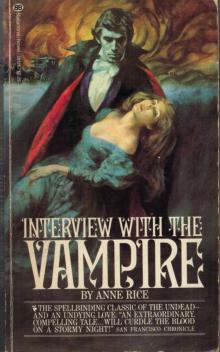 Interview with the Vampire
Interview with the Vampire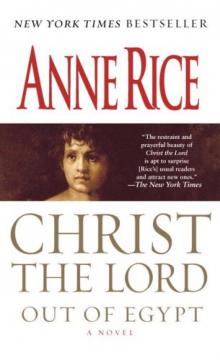 Christ the Lord: Out of Egypt
Christ the Lord: Out of Egypt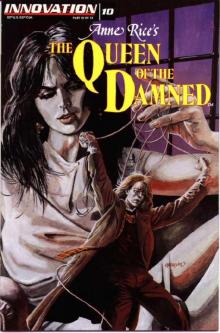 The Queen Of The Damned
The Queen Of The Damned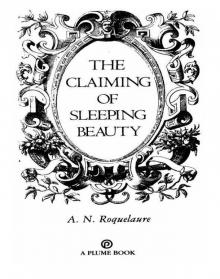 The Claiming of Sleeping Beauty
The Claiming of Sleeping Beauty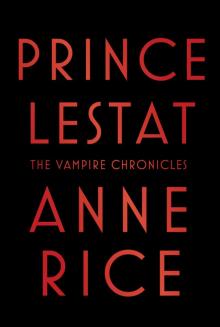 Prince Lestat
Prince Lestat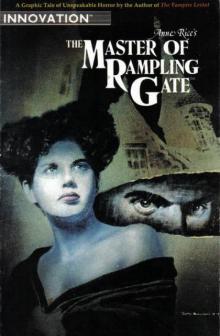 The Master of Rampling Gate
The Master of Rampling Gate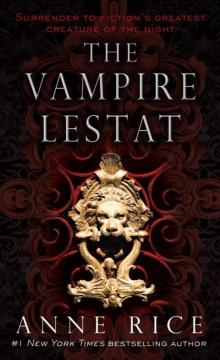 The Vampire Lestat
The Vampire Lestat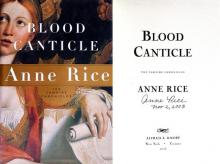 Blood Canticle
Blood Canticle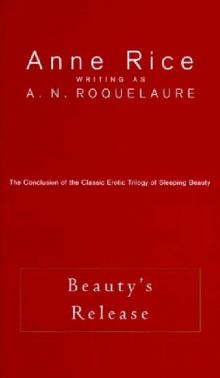 Beauty's Release
Beauty's Release Pandora
Pandora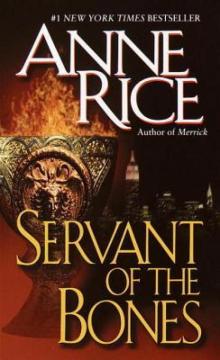 Servant of the Bones
Servant of the Bones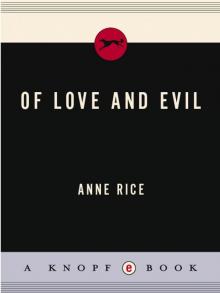 Of Love and Evil
Of Love and Evil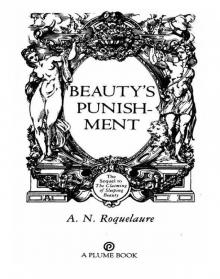 Beauty's Punishment
Beauty's Punishment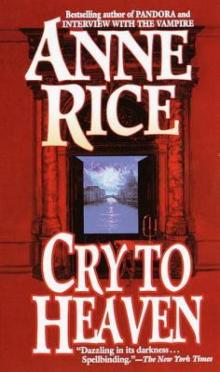 Cry to Heaven
Cry to Heaven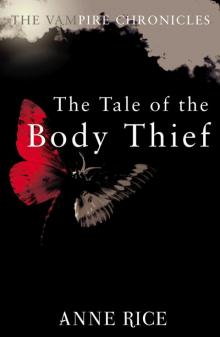 The Tale of the Body Thief
The Tale of the Body Thief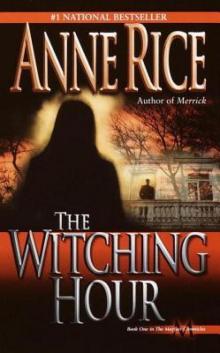 The Witching Hour
The Witching Hour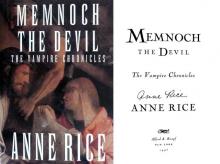 Memnoch the Devil
Memnoch the Devil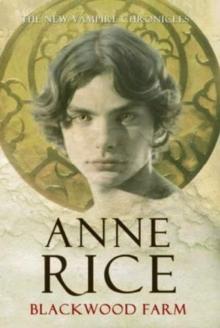 Blackwood Farm
Blackwood Farm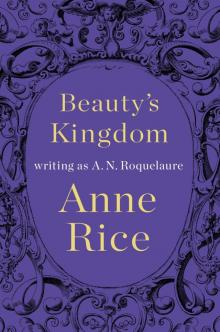 Beauty's Kingdom
Beauty's Kingdom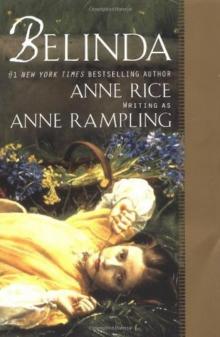 Belinda
Belinda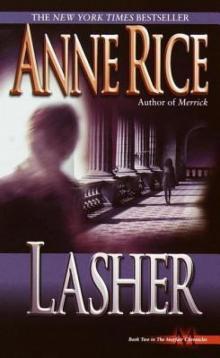 Lasher
Lasher Vittorio, the Vampire
Vittorio, the Vampire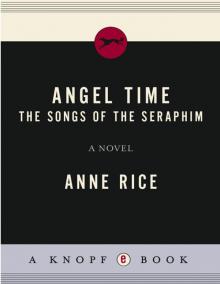 Angel Time
Angel Time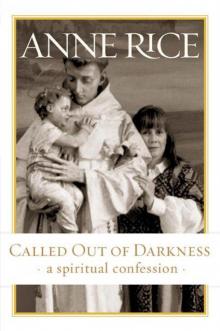 Called Out of Darkness: A Spiritual Confession
Called Out of Darkness: A Spiritual Confession Blood And Gold
Blood And Gold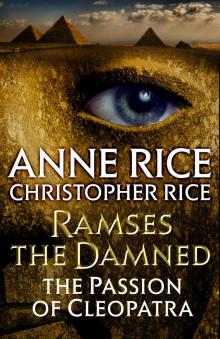 The Passion of Cleopatra
The Passion of Cleopatra Taltos
Taltos Exit to Eden
Exit to Eden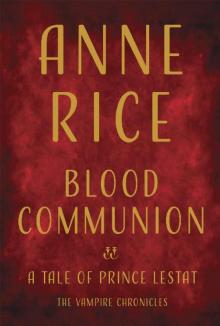 Blood Communion (The Vampire Chronicles #13)
Blood Communion (The Vampire Chronicles #13) The Wolf Gift
The Wolf Gift The Wolves of Midwinter
The Wolves of Midwinter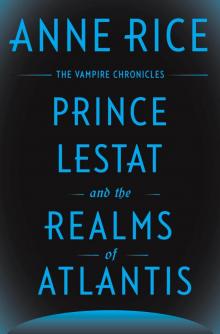 Prince Lestat and the Realms of Atlantis
Prince Lestat and the Realms of Atlantis The Ultimate Undead
The Ultimate Undead The Vampire Lestat tvc-2
The Vampire Lestat tvc-2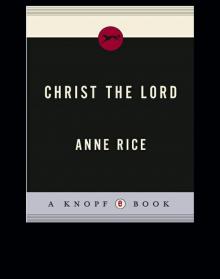 The Road to Cana
The Road to Cana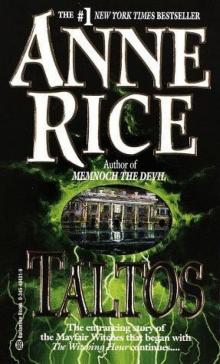 Taltos lotmw-3
Taltos lotmw-3 Merrick tvc-7
Merrick tvc-7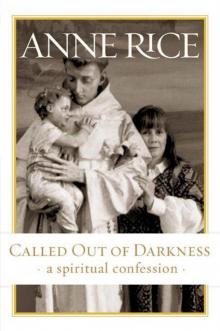 Called Out of Darkness
Called Out of Darkness Pandora - New Vampires 01
Pandora - New Vampires 01 Bllod and Gold
Bllod and Gold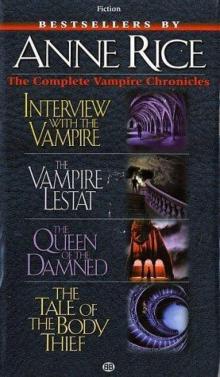 The Queen Of the Damned: Vampire Chronicles
The Queen Of the Damned: Vampire Chronicles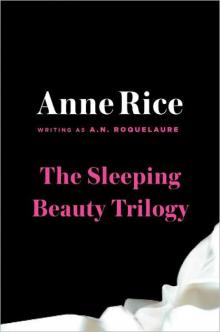 The Sleeping Beauty Trilogy
The Sleeping Beauty Trilogy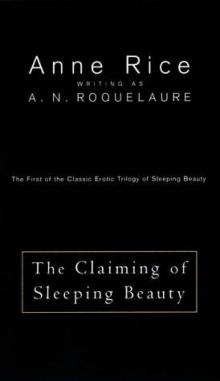 The Claiming of Sleeping Beauty b-1
The Claiming of Sleeping Beauty b-1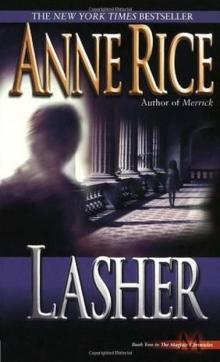 Lasher lotmw-2
Lasher lotmw-2 The Tale of the Body Thief tvc-4
The Tale of the Body Thief tvc-4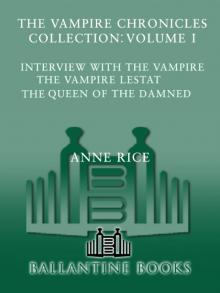 The Vampire Chronicles Collection
The Vampire Chronicles Collection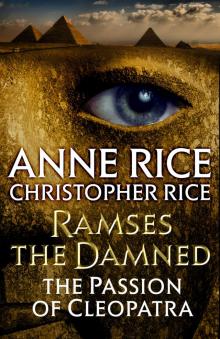 Ramses the Damned
Ramses the Damned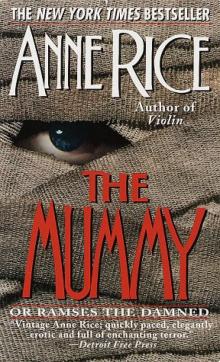 The Mummy - or Ramses the Damned
The Mummy - or Ramses the Damned Vittorio, The Vampire - New Vampires 02
Vittorio, The Vampire - New Vampires 02 The Vampire Armand tvc-6
The Vampire Armand tvc-6 Queen of the Damned tvc-3
Queen of the Damned tvc-3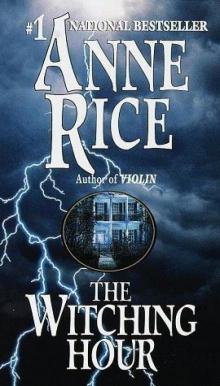 The witching hour lotmw-1
The witching hour lotmw-1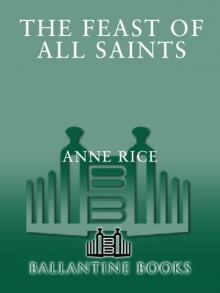 Feast of All Saints
Feast of All Saints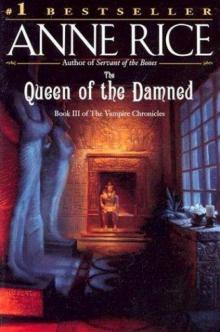 Queen of the Damned
Queen of the Damned The Wolves of Midwinter twgc-2
The Wolves of Midwinter twgc-2 The Mummy
The Mummy Blood and Gold tvc-8
Blood and Gold tvc-8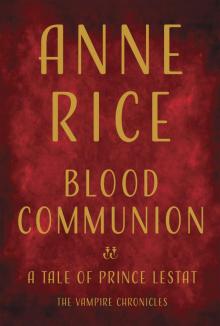 Blood Communion
Blood Communion Interview with the Vampire tvc-1
Interview with the Vampire tvc-1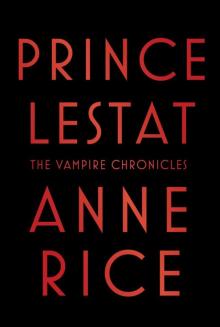 Prince Lestat: The Vampire Chronicles
Prince Lestat: The Vampire Chronicles